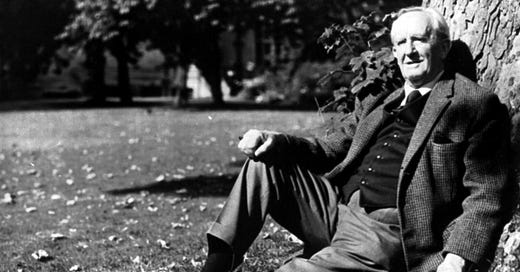When examining the (absolute) state of RPGs, there are many things we can point to as contributing factors to the downfall of RPGs. There’s the emphasis on storytelling, the glut of retroclones, the invasion of AI writing and art, and a laundry list of other grievances that I could sight as reasons why I’m unsatisfied with a lot of RPGs. However, all of these seem like symptoms to me rather than root causes. Instead, I would like to put forward what I believe is the disease from which all of these symptoms spring. The problem is that RPGs have sanded down all intellectual rigor that was previously required to play RPGs. From 1974 to 1984, RPGs went from something played by graduate students and amateur historians to something played largely by teenagers and children. The hobby has devolved even further in the subsequent three decades culminating in games that are so mechanically barren that they’ve basically become loose guidance systems for games of make-believe. It’s as if someone turned Dostoevsky into a puppet show. I for one am sick of it and I’m not the only one. It’s time to once again make RPGs an exercise in reading, thinking and bonding over the triumph over a difficult task.
RPG rulesets have been dumbed down significantly in the years since Gygax first released the original three books. More and more things have been hand-waved instead of handled with robust mechanics. On one hand, I understand the desire to simplify things, but simplifying things comes with a cost. If you caught my stream with Gelatinous Rube and AlchemicRaker then you heard us discuss this idea of D&D being a shadow of itself. That’s what so many simplified mechanics do. They technically allow you to do things, like the mounted combat rules in 5e, but they aren’t robust enough to truly replicate what many players are looking for. Unfortunately, simpler is not always better and the fallacy that it is currently rules over the RPG market. We shouldn’t be afraid of having complicated rules for things that require complicated rules. Complexity is not inherently bad and I’m tired of pretending that it is.
Likewise, roleplayers need to rise to a higher level of interfacing with the game. The very act of roleplaying itself is a mentally taxing exercise when done properly. To roleplay, a person sets aside their own concerns temporarily and enters the mental space of a person in different circumstances. In the realm of fantasy roleplaying, this means entering the mind of a person who has never experienced the internet, electricity, indoor plumbing, germ theory, or any number of other modern innovations. It is entering the headspace of someone who is well-acquainted with death and suffering who is primarily motivated by survival. Now think about your average RPG character. Most of them aren’t like that, are they? In fact, I would put a month’s salary on the majority of them being either the player themselves or a thinly-veiled copy of a popular fictional character. These characters are not typical medievals in outlook, but wise-cracking Joss Whedon characters straight from the latest Marvel movie. We ought to expect better of roleplayers at our table. Instead of being concerned with whether or not their “clever” pop culture reference lands at the table, players should be focused on how their character would react to having to kill a humanoid for the first time or having to scavenge for food in a hostile wilderness.
This inability to place oneself in the headspace of a person born pre-20th century comes from an endemic lack of curiosity about the past. Our past has been so demonized by academia and media that the majority of people will unironically say things like “Why should we care what they thought about? They were racist.” That’s the excuse at least, but for most people that’s all it is. It’s an excuse to explain away fundamental incuriosity. Personally, I see this as something that has been intentionally hammered into people’s heads by modern schooling, but that’s a topic for someone else to write about. Instead, I encourage those of you who read my articles to approach roleplaying with an intellectual curiosity. Read a wide variety of books on history. Read primary sources if you can find them. Try to understand something beyond the modern era. You’ll be a better person and a better roleplayer for it.
There’s a pernicious fallacy that leisure activities need to be mindless. This is a vicious lie. In fact, the opposite is true. Leisure activities that keep your mind sharp and active are far better than those that allow or encourage you to disengage your brain. Roleplaying should be an intellectually stimulating hobby that encourages forays into tactics, history, linguistics, and literature. It should require critical thinking, basic mathematics, and curiosity. Roleplaying is an intellectual hobby and it needs to remain one.




